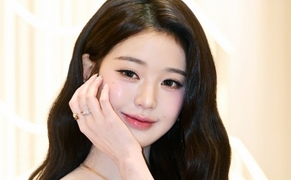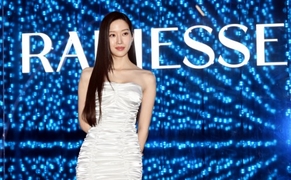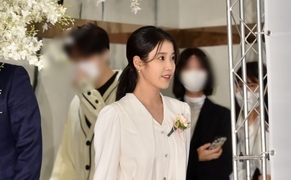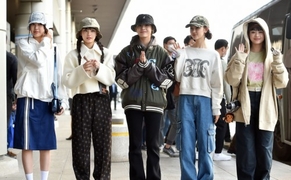 |
| A campaign bus for People’s Party candidate Ahn Cheol-soo (right) is parked in Songdo, Incheon, on February 13. Another campaign bus for People Power Party candidate Yoon Suk-yeol (left) is seen in Paju, Gyeonggi Province, on February 11./ Source: Joint Press Corps, Yonhap |
AsiaToday reporter Lee Yoo-jin
Official campaigning for the upcoming 20th presidential election has kicked off Tuesday. Presidential candidates of the four major parties, including Lee Jae-myung of the ruling Democratic Party (DP), Yoon Suk-yeol of the main opposition People Power Party (PPP), the Justice Party’s Sim Sang-jung and the People’s Party’s Ahn Cheol-soo, engaged in all-out warfare on the first day of their official campaign.
The National Election Commission (NEC) announced Monday that the official campaign period begins at 12 a.m. Tuesday and run through midnight on March 8.
First of all, Lee Jae-myung visited the Busan Vessel Traffic Service Center in Busan as the first schedule of the campaign on Tuesday and met the workers of export ships. He will then head to Daegu, Daejeon and Seoul to meet voters.
PPP candidate Yoon will also visit the Gyeongbu line. Starting with Seoul, Yoon will visit Daejeon, Daeju and Busan on the first day of his official campaign. He will hold a campaign ceremony at Cheonggye Plaza in Seoul, and then move to Daejeon’s Euneungjeongi Culture Street and Dongdaegu Station Plaza.
Candidate Ahn will focus on the TK region, comprised of Daegu and North Gyeongsang Province, the traditional home turf for conservatives. He will visit Daegu, Gumi, Gimcheon, Andong, and Yeongju to expand his support base among conservative voters.
The Justice Party’s Sim will take the KTX high sped train at Yongsan Station and head to Iksan in North Jeolla Province. She will announce the Honam strategy under the theme of “working citizens’ president under four-day-a-week welfare state” at the Jeonju opening ceremony. Then she plans to visit the funeral home for the victims of the Hwajeong-dong collapse in Gwangju.
According to the NEC, presidential candidates are able to deliver speeches in public places using vehicles or loudspeakers and are also permitted to put up placards. They can send campaign materials to voters and release TV and radio commercials.
#Presidential election campaign
Copyright by Asiatoday
Most Read
-
1
-
2
-
3
-
4
-
5
-
6
-
7





















